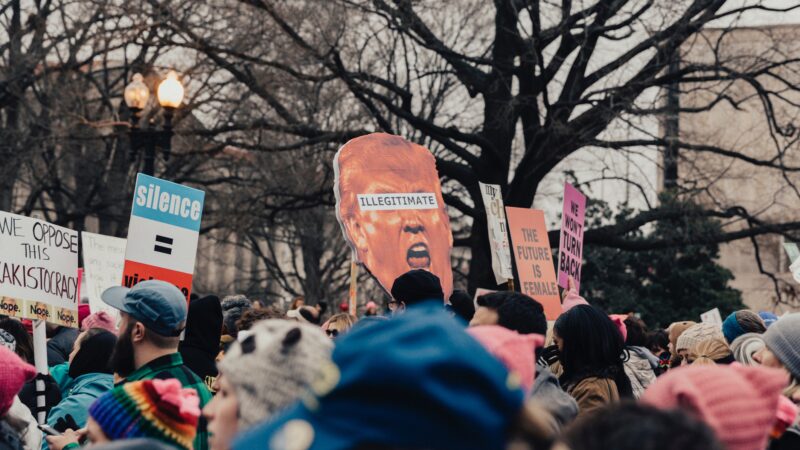Since the 1960’s, the number of children growing up with single mothers has increased exponentially. In the UK in 2020, almost 50% of children were born to an unmarried mother (Statista, 2022), and yet while there has been some political attention given to the topic (such as the creation of the Child Support Agency in 1993), there has been little social discourse about the effects on children, and on wider society.
There has been increasing evidence that there are, as one can intuitively know, detrimental effects to growing up without a father. 63% of youth suicides are from fatherless homes, as are 90% of all homeless and runaway children. For boys, the lack of a positive male role model has been shown to lead to a propensity towards violence and even rape, and for girls, the lack of a father figure is linked to sexual promiscuity, substance abuse, and anxiety.
While most in the mainstream would like to pretend that they do not know this, this has been public information (if not intuitively obvious) for 20 years. Lots of politicians (particularly in the US) have paid lip service to the importance of fathers, but none are willing to confront the two root causes of their absence: feminism and welfare.
While believing in equality under the law, equal citizenship, and equal value are all good things, the nobel aims of early feminists have been grossly perverted by corporate feminists, who in tun have been cheered on by male capitalists. Given that women generally choose lower-paying jobs, work fewer hours, and are generally less economically productive than men; it only makes sense for those interested in extracting the greatest possible amount of labour from the populace lead women to believe that the way to have the highest value is to devote as much time as possible to work outside the home.
Given that most high-status jobs have been dominated by men for most of Western history, it was no surprise when women started emulating male habits in other areas of life, such as dress, interests, and general demeanour. In a culture which says that the highest-value women are those who are the most like men, there is no place for fathers as the culture believes that the mothers ‘can have and do it all’.
However, only very well-educated, highly-paid employees of either sex can support a family alone in the era of the dual-career family. This led the politicians of the mid-20th century to create the other demon which we must reckon with if we want to restore familial harmony in our homes.
Academic research from Griffiths (2017) has shown that the modern system of British welfare encourages mothers to live alone. Some embrace this path of singleness, while others defraud the system by not reporting to the DWP that they have a ‘partner’ resident. Either way, research has clearly shown that modern welfare places the ‘couple penalty’ on poor couples who want to work hard and raise their children with proper parental influences. The feminist reading of this is that by examining people as ‘households’ rather than individuals, women are disenfranchised. Another way of looking at it is to prevent needless overpayment to those out of work. By financially penalising marriage, the state has weakened family bonds to such an extent that, despite the stated desires of those involved, the daily wear of life will cause them to break under slight pressure.
Most people would agree that those who become single mothers through widowhood, abandonment, or to escape abuse should be supported, but it does not follow that to do this we need a welfare system which incentivises bad behaviour among men. While there are a malevolent few, most men will not sit by at the thought of their children suffering poverty, whatever issues may exist between former couples. In light of this perspective, having a welfare system which is generous to single mothers incentivises father absence, as a man can move on in the knowledge that his ‘baby mama’ will be taken care of.
Multigenerational father absence is most prominent among black people in the US, so it is only fitting that the long-term societal effects of fatherlessness can be best understood through examining this group. With single motherhood rates of 72%, here fatherlessness is very much the norm. Despite calls from prominent black figures such as Dr Natalie Carroll for her patients to ‘Marry Your Baby Daddy’, because so many in this community have no happily-married role models to compare themselves to, the damage of fatherlessness seems to go unnoticed. Low educational achievement means that (in general) black men do not make desirable husbands, and the better option for women is to marry the government: which provides a steady paycheck, a house, food, and healthcare. High imprisonment rates among black men means that separation from children is long-term and sometimes irreversible. Given that fatherless girls are more likely to be promiscuous, and fatherless boys are more likely to be violent, the cycle continues with no obvious way out other than a major cultural change that sees the value of the nuclear family.
To sum up, the state-sponsored destruction of the family is a threat to us all. Mothers are extremely valuable in their role as carers, but fathers have an equally important role in providing not just funds, but structure and discipline to a household. Given other trends towards an unstructured lifestyle such as ‘flexible’ working, lax divorce laws, and portfolio careers over the stability of jobs for life, the youth of today are crying out for structure; which means that we are crying out for fathers.




